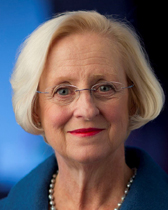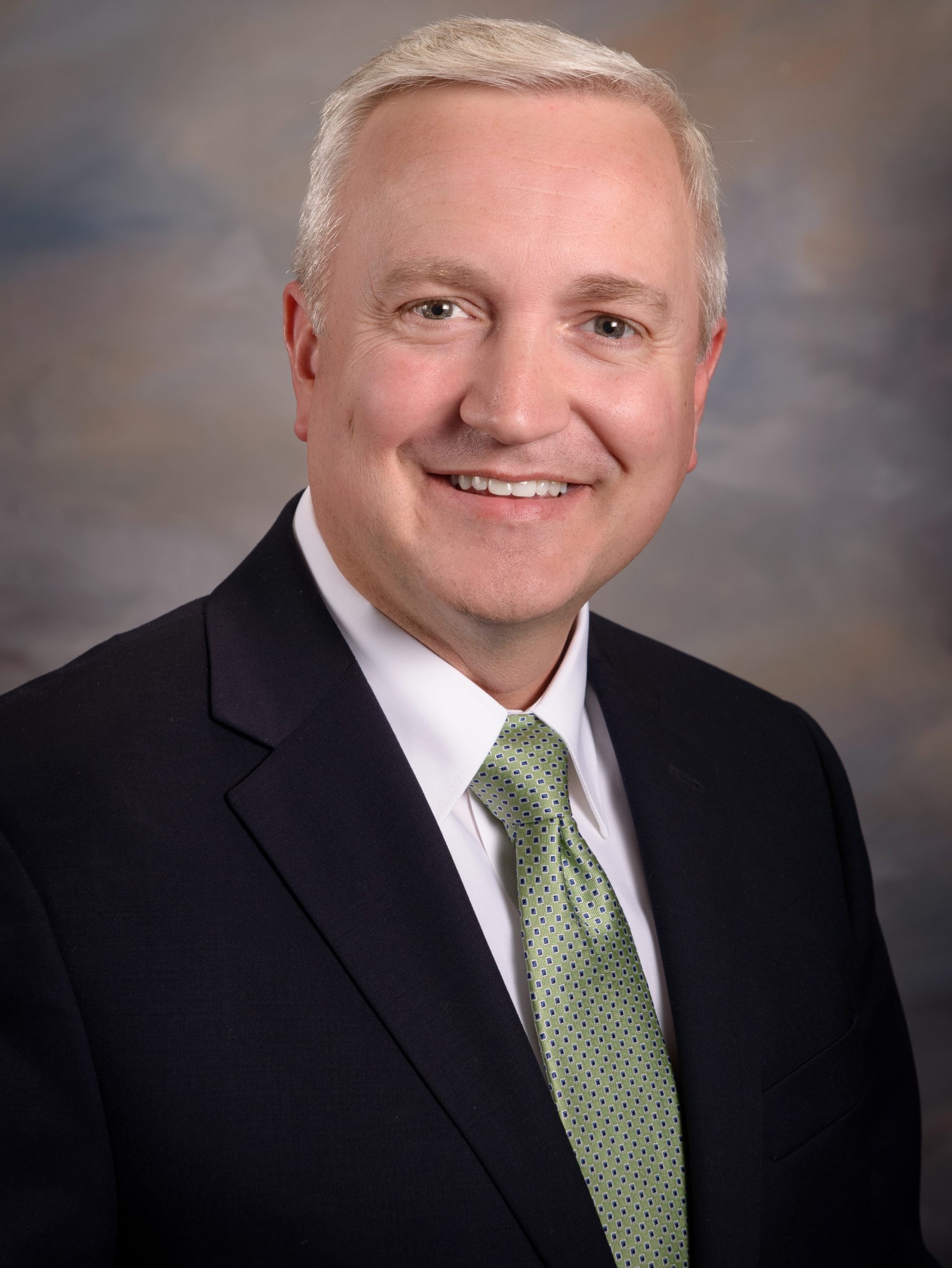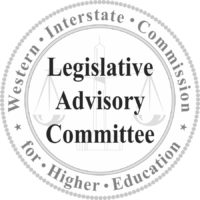Since 1952, Arizona has partnered with and benefited from WICHE through regional collaboration, resource-sharing, sound public policy, and innovation.
Download the factsheet for Arizona here.
2023-24 ACADEMIC YEAR
by Arizona students through WICHE Student Access Programs
through WUE
through WRGP
through PSEP
WICHE’s Student Access Programs
WICHE operates three Student Access Programs that together saved nearly students $613 million in 2023-24. Each program supports students at each level of postsecondary education: undergraduate, graduate, and professional healthcare studies.
- Students gain from increased choice and savings.
- Schools gain by optimizing enrollments.
- States and Pacific Island members gain by growing the skills of those they serve and strengthening their workforce.
PSEP has had a tremendous impact on my educational and career goals. It has relieved a lot of stress about paying back loans after graduation. Instead, I can focus on diving into the work field and serving my home state of Arizona. I am so thankful to have this amazing support! I encourage everyone to apply for PSEP.
Trisha, Arizona resident, Doctor of Dental Medicine, Midwestern Univeristy, AZ
Improving Lives in Arizona
WICHE works collaboratively to expand educational access and excellence for all residents of the West. By promoting innovation, cooperation, resource sharing, and sound public policy, WICHE strengthens higher education’s contributions to the region’s social, economic, and civic life. Learn more about our mission.
WICHE brings together senior academic leaders to foster dialogue about issues facing individual institutions through its leadership and professional development networks.
WESTERN ALLIANCE OF COMMUNITY COLLEGE ACADEMIC LEADERS – 2-YEAR INSTITUTIONS
- Chandler-Gilbert Community College
- Eastern Arizona College
- Estrella Mountain Community College
- Gateway Community College
- Glendale Community College
- Maricopa Community Colleges
- Mesa Community College
- Paradise Valley Community College
- Phoenix College
- Rio Salado College
- Scottsdale Community College
- South Mountain Community College
Bettina Celias, Maricopa Community Colleges, is a member of the Alliance executive committee.
WESTERN ACADEMIC LEADERSHIP FORUM – 4-YEAR INSTITUTIONS
- University of Arizona
- Northern Arizona University
John Georgas, Northern Arizona University, is a member of the Forum executive committee.
WESTERN ACADEMIC LEADERSHIP ACADEMY is a year-long professional development program for academic leaders aspiring to become chief academic officers in the WICHE region. Two cohort members from Arizona institutions have participated in the Academy since its inception in 2015.
NO HOLDING BACK The University of Arizona is one of 12 WICHE institutions that participated in a community of practice in which institutions analyzed data and revised policies related to transcript and student holds in 2022-2023.
Thanks to collaboration with the Midwestern Higher Education Compact (MHEC), one of four U.S. regional higher education compacts, WICHE-region educational institutions, nonprofits, and public education entities can benefit from three programs: MHECtech, which provides competitively bid purchasing contracts for an array of hardware, software, and technology services; MHECare, which provides a student health insurance plan and teletherapy services; and a MHEC Cyber Insurance Program, which offers risk transfer and advisory solutions. Learn more.
Arizona participates in the STATE AUTHORIZATION RECIPROCITY AGREEMENT (SARA) through WICHE. This voluntary agreement provides reciprocity for the state authorization of distance education.
WICHE Behavioral Health Program (BHP) partners with the Arizona Health Care Cost Containment System to support fidelity reviews of four evidence-based practices in the Maricopa County Public Behavioral Health System.
BHP also collaborates with Mercy Care Arizona to provide training, education, and guidance concerning evidence-based practices (EBPs) and fidelity tools to ensure provider staff are offering high quality EBPs and are ensuringfidelity to identified EBPs protocols.
The BHP Together With Veterans Program, focused on reducing Veteran suicides, supports three communities in AZ: the Veterans Coalition of Central AZ in Yavapai County; the Cocopah Indian Tribe in Yuma County; and the Colorado River Indian Tribe in La Paz County. Between the three communities, the program has served nearly 750 veterans.
Knocking at the College Door is the leading U.S. resource for projections of college-ready students. Knocking, which includes a quadrennial publication with additional analysis, is essential for postsecondary policymakers, planning and workforce efforts, and economic development.
WICHE offers curated data and policy resources to support better-informed decision-making:
- Tuition and Fees in the West includes tuition, fees, and enrollment data about 350+ public institutions in the West.
- Benchmarks: WICHE Region presents information on the West’s progress in improving access to, success in, and financing of higher education.
- Data on over 35 indicators in WICHE’s Regional Fact Book for Higher Education in the West.
CHIEF ACADEMIC OFFICERS NETWORK Staff from the Arizona Board of Regents also participate in regular collaborative calls with colleagues around the region.
WCET- The WICHE Cooperative for Education Technologies is the leader in practice, policy, and advocacy of technology-enhanced learning in higher education. WCET members include Arizona State University, Coconino Community College, Grand Canyon University, Mesa Community College, Northern Arizona University, Pima Community College, Prescott College, Rio Salado College, The University of Arizona, and the University of Phoenix.
Dale Johnson, Arizona State University, serves on the WCET Executive Council. Janelle Elias, Rio Salado Community College, serves on the WCET Steering Committee.
Additionally, Grand Canyon University, Northern Arizona University, Prescott College, Rio Salado College, and the University of Phoenix are members of the State Authorization Network (SAN), which helps guide institutions through state regulations around online courses and programs.
WICHE has convened the OERWest Network, which is part of a nationwide collaborative to scale the development and adoption of free course materials. Open educational resources (OER) have shown promise in improving student outcomes, particularly for poverty-affected students, for whom the high cost of textbooks can be a barrier to postsecondary success.
WICHE Commissioners
*indicates Executive Committee member
* Kathleen Goeppinger
President/CEO, Midwestern University
Kathleen Goeppinger *
President/CEO, Midwestern University
Kathleen H. Goeppinger, Ph.D., has since 1995 been president and chief executive officer of Midwestern University, an upper-division institution specializing in graduate-level health professions with two campuses (in Downers Grove, IL and Glendale, AZ) enrolling 7,200 students. Previously, Goeppinger had been a tenured professor and director at Loyola University Chicago for the Institute of Industrial Relations and Center for Organizational Development. Prior to her time in academia, she worked in the private sector as a management consultant in health care and organizational development and held corporate management roles in human resources and training. She has served Midwestern University since 1985, initially serving on the board of trustees and as chairman of the board. She is a member of numerous boards of directors in the Greater Phoenix and Downers Grove areas, and among other honors was named as one of 25 most admired CEOs by the Phoenix Business Journal for her leadership, dedication to, and impact on higher education. She earned her bachelor’s degree from Carthage College in Kenosha, WI, and her master’s degree in industrial relations and doctorate in comparative international policy from Loyola University in Chicago.

Todd Haynie
President, Eastern Arizona College
Todd Haynie
President, Eastern Arizona College
President Todd Haynie’s roots run deep in the area Eastern Arizona College serves. He was born in Morenci, lived in Payson, graduated from Thatcher High School, and is a proud alumnus of Eastern Arizona College. Prior to becoming the 22nd president of EAC in 2018, President Haynie worked in private industry as a producer for the Educational Management Group and as a software engineer for IBM. He was recruited by EAC to become an admissions counselor and was later promoted to the College’s director of marketing and public relations.
Under his leadership, President Haynie has guided EAC through a comprehensive strategic planning process, launched new initiatives to strengthen programming in campus diversity, and transformed the College’s approach to developmental education. President Haynie’s guiding pillars for his administration are student success, community engagement, and financial responsibility. President Haynie was awarded a bachelor’s degree in film studies from Brigham Young University and a Master of Business Administration from Northern Arizona University.
He serves in many roles within the community but considers the role of husband and father his greatest responsibility.

Chad Sampson
Executive Director, Arizona Board of Regents
Chad Sampson
Executive Director, Arizona Board of Regents
The Arizona Board of Regents named Chad Sampson executive director in August 2024. He joined the board in 2010 as associate general counsel and transitioned to vice president of strategic planning before serving most recently as vice president of academic affairs and institutional analysis. A member of the State Bar of Arizona since 2002, Sampson has also worked in private law practice with Quarles & Brady and in the Arizona Attorney General’s Office as counsel for the Arizona Department of Education.
Sampson is active in the education community, serving on the WestEd Board of Directors. He has previously served on the board at Tempe Preparatory Academy, Center for After School Excellence and the Arizona State Board of Education’s Professional Practices Advisory Committee. He has also worked as an adjunct professor at Mesa Community College.
Sampson earned bachelor’s degrees in sociology and political science from the University of Utah and a juris doctorate from the University of Iowa College of Law. Sampson and his wife, Amber, have five children.

Legislative Advisory Committee
Vacancy
